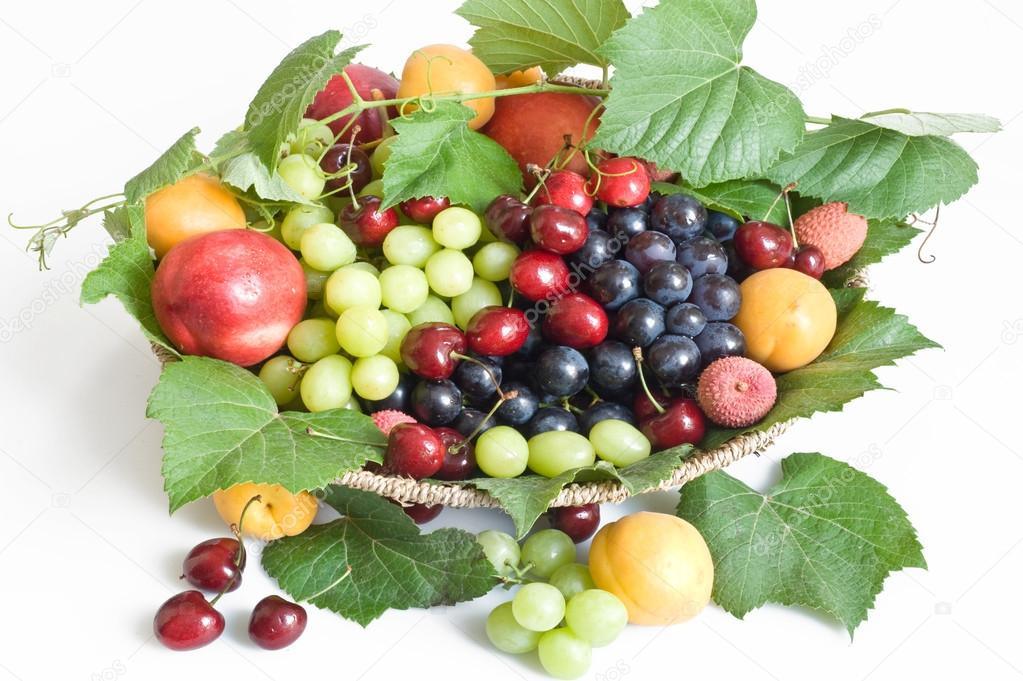Holistic Nutrition
Holistic nutrition is the foundation of holistic health, alternative health and all proactive wellness programs. It is based upon a whole food diet while at the same time paying attention to other lifestyle factors such as; mental health, spiritual health and environmental health.

Holistic Trinity
Physical health, mental health and spiritual health; these are the holistic trinity in whole health care. Each of these areas have a role to play in our total well being, including; how we feel, our health, energy levels and even our appearance.
As each of these areas gains its own focus, they can come together to create our whole, healthy being with clarity of mind, an energetic and healthy body and a great attitude to cope with life's daily struggles.
Since we have to start healing somewhere, many find that using holistic nutrition is the place to begin. This is because what you eat affects your physical appearance and health, your mental state and can inhibit the spiritual aspect of self.
Unfortunately, the term has been designated by some in the medical and science community as a modern trend in nutrition and not as valid by some.
Holistic nutrition relies on basic, common sense of what instinctively humans have known, and science now proves, about the nutritional value of foods. The nutritional value of any food is most beneficial when it is unadulterated by pesticides and processing, and the body is able to utilize all nutrients available when it is clear of pollutants and man-made toxins.
The reality is that holistic nutrition is not new age or even a modern ideal. It is a practice of going back to the source of our food and health, beginning with foods that are in their whole and natural form without added chemicals (such as pesticides) or being genetically altered. Whole foods are used as a source for our basic needs of nutrition for healing as well as day-to-day health, or may even be used to allow our natural body cleansing process to begin.
Holistic practitioners use whole foods, cleansing foods, herbs and whole food supplements to aid in the healing process. Any nutritional supplements used are created using the whole plant as a source of vitamins, minerals, trace minerals or other components that may aid in health.
Supplements such as fibers, essential fatty acids, green superfoods for protein and other herbs work in conjunction with diet to ensure a complete source of nutrients needed to strengthen the immune system or to help the body heal. These are used in lieu of laboratory manipulated vitamins and minerals because many of these nutrients are not absorbed properly when not accompanied by micronutrients, which are often left behind in processing. At the same time, harmful substances may be added to some overly-processed supplements to keep the stability or freshness.
Whole Food Nutrition and Holistic Nutrition
Whole foods in their natural, whole, unprocessed state are no doubt the healthiest version for us to consume. Whole vegetables and fruits contain not only necessary vitamins and minerals, but many additional compounds that help our bodies absorb and utilize them.
Many fruit and veggies skins contain fiber our digestive tracts need to keep it clear of waste and debris, and contain the purest form of vitamin water available to us. Organic produce is best because it contains more nutrients and a significantly higher amount of antioxidants than its non-organic counterpart. In addition, organic produce contains no (or at least a much lesser amount) of chemical pesticides, which can be harmful to our bodies.
Vegetable and fruit juices can be a great addition to whole food nutrition. While juicing, the juice is extracted from the fiber, allowing the nutrients to be more easily absorbed by your body. Because the fiber is removed, many people with digestive issues are able to absorb more nutrition than by eating the same amount of produce. It is possible to consume far more nutrition through juice simply because you can drink the juice of 10 carrots, yet it would be difficult to eat and digest the same amount. This makes it an important addition to many holistic health healing programs.

Processed foods are shunned during a holistic nutrition program to allow the body to rest and recuperate from these types of foods, as they can be difficult to digest. This goes with supplementation as well, as some contain harmful additives such as aluminum or magnesium stearate. In place of these, whole food supplements and herbs are used, which may be organic, as well.
A raw food diet is one aspect of being holistic. While this approach is one of the purist forms of holistic nutrition, not everybody will be ready to do this. Instead, it is best to ease slowly into any dietary changes to allow your body to naturally cleanse and reset. But when a completely raw diet can be followed, the results do prove to be pretty amazing as you see improved health, vibrancy and even longevity in those who practice it.
Holistic Nutrition and Mental Health
Many people find that when they switch to a holistic lifestyle, including whole nutrition, they find their mental state improves. This is partly due to leaving out processed foods that contain hidden sugars, salts and other ingredients that can interfere with out mental well being.
For example, sugar consumption can cause a crash effect, leaving you feeling depressed or fatigued while at the same time a healthy diet is a great way to manage stress. Certain foods can make or break your energy levels while others leave you feeling light and energetic. A holistic outlook is also considered in supplementation when mental health issues are a concern; so much that Linus Pauling won a nobel prize for what he termed Orthomolecular medicine and uses nutrition in lieu of medications to help people with mental issues.
Spiritual Health
Holistic nutrition is used by some on a
path to their spiritual health. Often people are inclined to fast or
do a body cleanse while on a spiritual pursuit because a healthy body
allows more room for your mind to focus and possibly even meditate.
Fasting has long been used by religious people as they attempt to
gain enlightenment. Many holistic health practitioners believe that
spiritual health must be part of a whole and healthy lifestyle,
believing that feeding the soul is just as important to physical and
mental health as is feeding the body.
This brings us to a complete circle
about why people use holistic nutrition as opposed to an approach
from the perspective of a Registered Dietician, who is more medical/science based. Holistic nutrition is not something that is new or modern, it is
simply a lifestyle of incorporating foods that heal either full time for a healthy change or
part time for healing purposes. Our bodies are built to survive and
very good at it, and when given the right building blocks
in the form of whole (or holistic) nutrition, it will do its job of
keeping us healthy happy and active well into our golden years. As the old saying goes, let food be your medicine.




